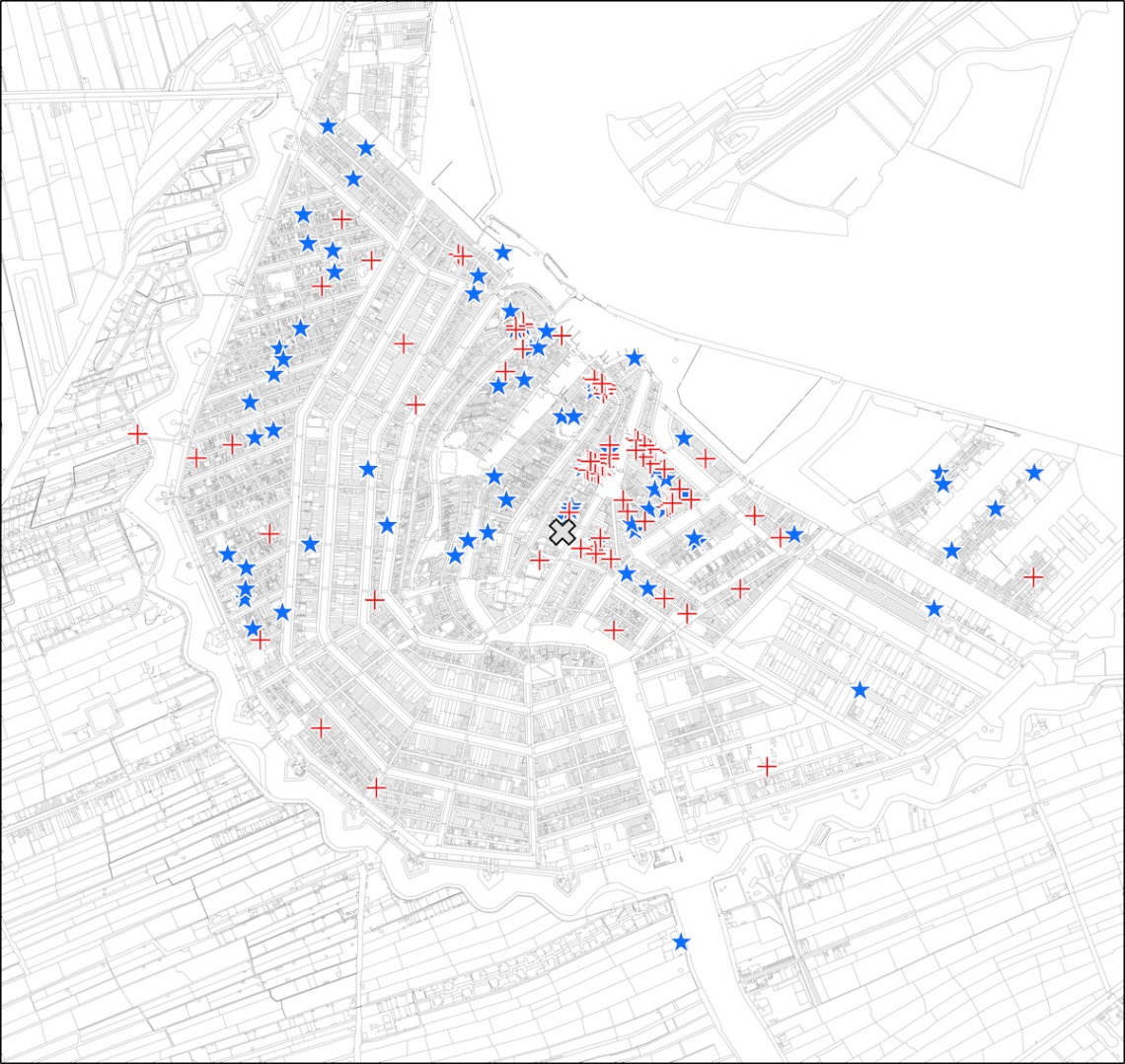Papers
-
VOC Sailors’ Last Days in Europe
Our new Dutch-language book, In de schaduw van de stad (Amsterdam: Ambo|Anthos 2023), which tells a series of short stories about ‘ordinary’ Amsterdammers through the ages, includes a chapter on sailors. We researched the crew members of three VOC ships that left Amsterdam in November 1775: who were they, where did they come from, where did they live or stay in Amsterdam? It was known that inns played an important role in the lives of many aspiring VOC sailors by providing a place to stay and information about finding work with the VOC. And it was also known that this was especially true for migrants. But we were surprised when…
-
English Seamen in the VOC
We recently wrote an article about English sailors in the service of the Dutch East India Company (VOC). They made up only a tiny fraction of the crews: during the eighteenth century, less than 1% of crew members came from England. This is a small number compared to, in particular, the Germans and Scandinavians. But this is explicable: the English economy offered plenty of jobs and high wages, so there was little reason for English sailors to come to the Republic. Moreover, Englishmen who sought an East Indian adventure would have been more inclined to join the English East India Company. It is precisely because of their small numbers that…
-
How do we reconstruct sailors’ careers?
We published a paper on our methodology of reconstructing sailors’ careers in the HUMIGEC project. It’s called ‘Small Lives, Big Meanings. Expanding the Scope of Biographical Data through Entity Linkage and Disambiguation’ and was co-authored by Lodewijk Petram, Jelle van Lottum, Rutger van Koert, and Sebastiaan Derks. The paper was originally presented at the 2017 edition of the Biographical Data in a Digital World conference, held in Linz, Austria. The maritime dataset and career reconstruction methodology serve as a use case to introduce the Huygens ING digital biographical data policy.

